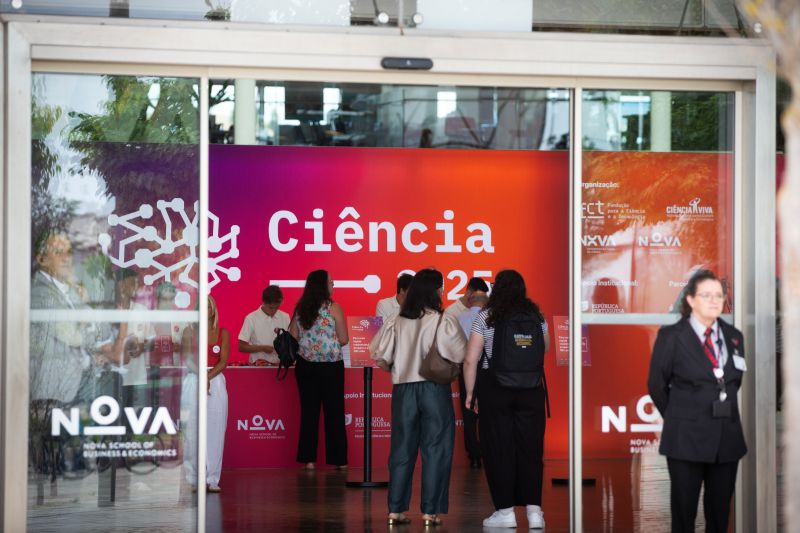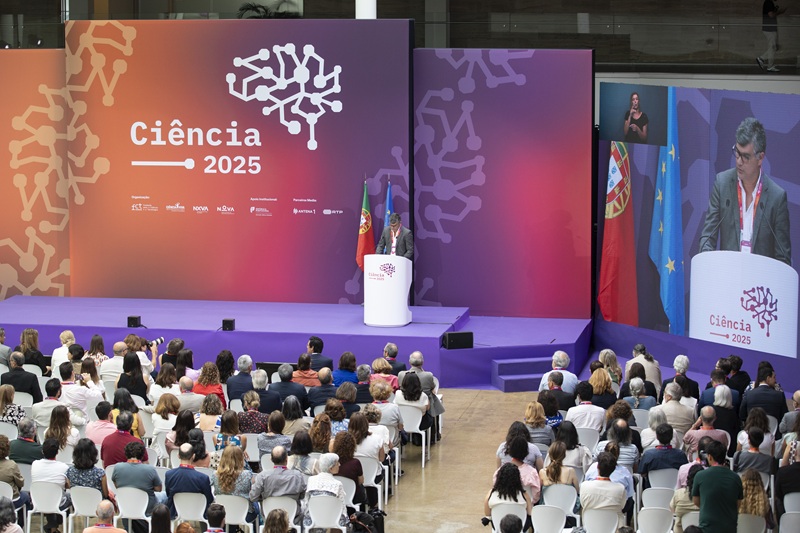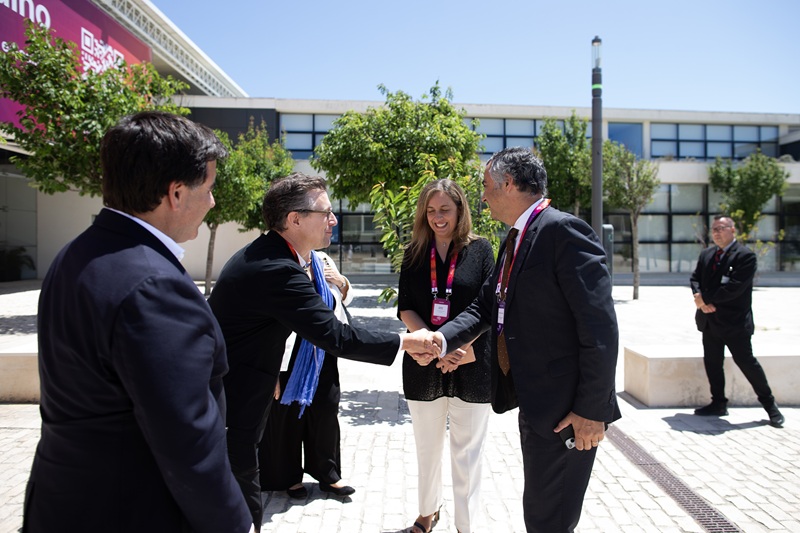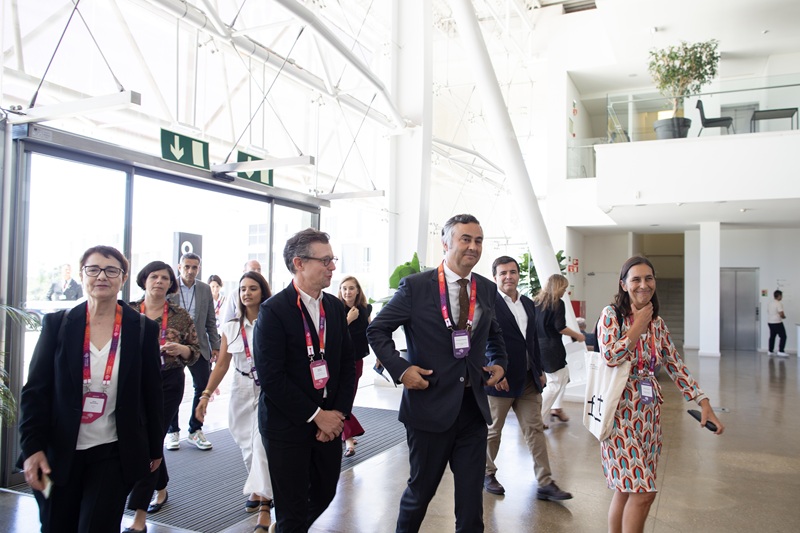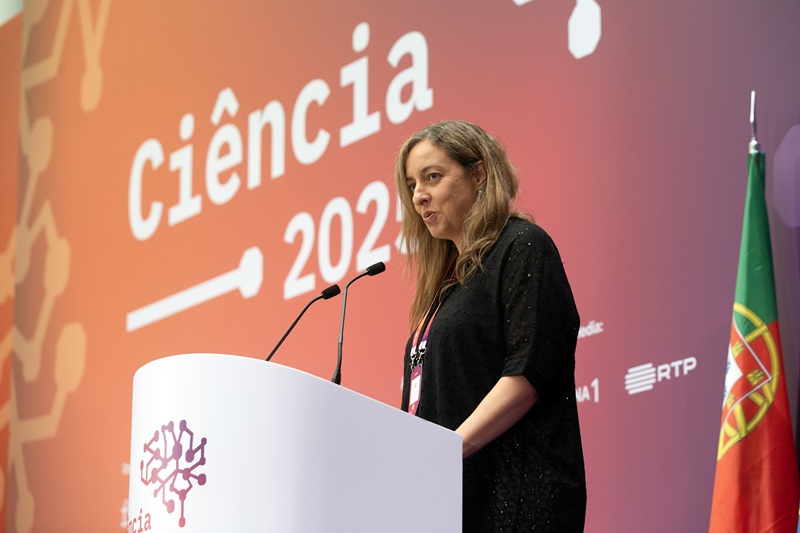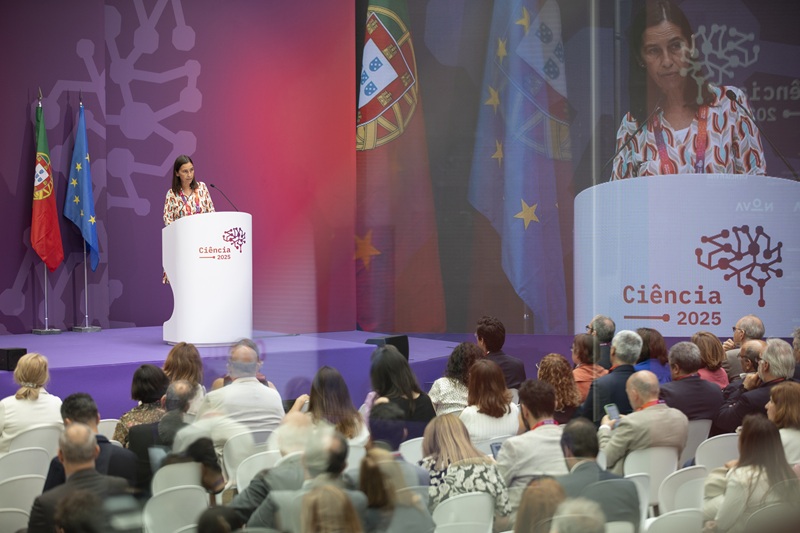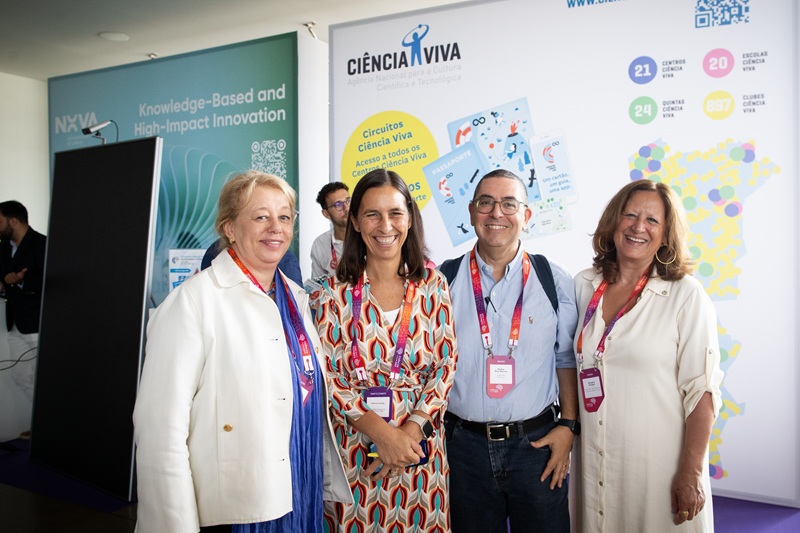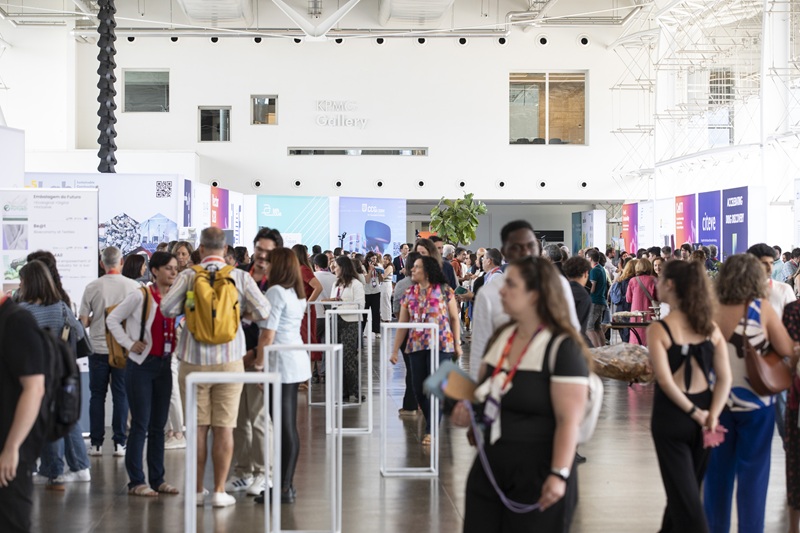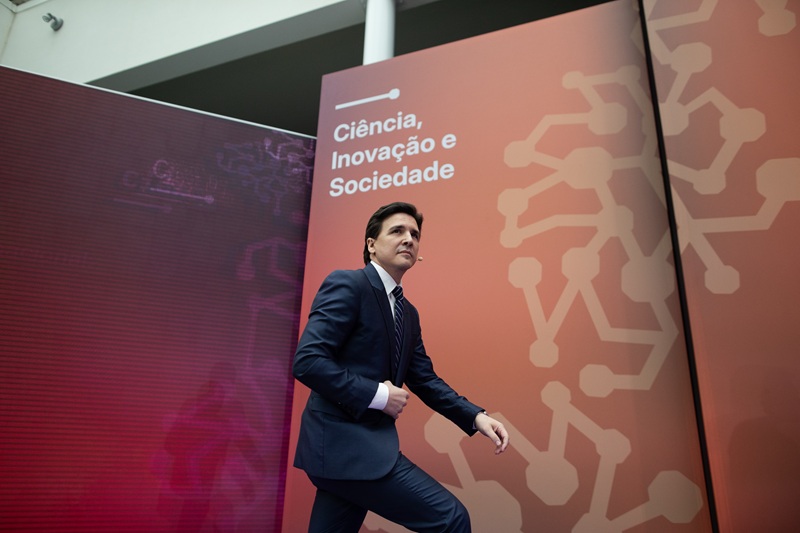‘Hosting this national meeting of Portuguese science at our institution is both a source of pride and a responsibility. Science, innovation and education are the foundations on which we build excellent universities and more just and sustainable societies that are better prepared for the challenges of the future,” said Isabel Rocha, NOVA’s Vice-Rector for Research and Value Creation, as she welcomed the Science 2025 event. Held at the Nova School of Business and Economics in Carcavelos, the event was dedicated to the theme of “Science, Innovation and Society”.
‘This theme invites deep reflection on the structuring role of science in the development of contemporary societies. Without science, there is no disruptive innovation, which is responsible for so many economic and societal transformations,’ she concluded, noting that ‘scientists have a duty to bring science to society and assist in the processes of informed choice and decision-making, including in politics.’
Organised by the Foundation for Science and Technology and Ciência Viva in collaboration with NOVA, the meeting brought together over 200 speakers and featured dozens of scientific sessions. It also saw a prominent presence from the European Commission, thus underscoring the central role Portugal continues to play in building the European Research Area.
The event began with a welcome address from Cascais City Councillor Alexandre Faria. Soon after, Vera Aldeias, a University of Algarve researcher and meeting curator, joined Nova SBE professor Pedro Pita Barros. ‘Portugal has been an example of innovation, resilience, and science,’ she said, adding that there is a need for ‘the courage to discuss the challenges we face in our country’.
Rosalia Vargas, president of the Ciência Viva Centres network, which has just launched another ‘Ciência Viva no Verão’ (Living Science in the Summer), emphasised the importance of the scientific community: ‘Without science, there is no future, so we must nurture these ideas.’
Madalena Alves, head of the Foundation for Science and Technology, then took to the stage to emphasise her unquestionable support for all research, whether it has immediate or future applications.
The opening session was closed by Helena Canhão, former director of NOVA Medical School and current Secretary of State for Science and Innovation. After announcing the review of legislation in this area, she emphasised: ‘It is of the utmost importance that, as a state, we contribute to a Europe that remains solid and supportive as a beacon of democracy and freedom in times of uncertainty.’
The proceedings began with an inspiring address by Nuno Prego Ramos, founder and CEO of Valvian — the new name for CellmAbs, a NOVA spin-off that brokered the agreement with BioNTech to license NOVA technology for cancer treatment.
Under the title ‘Portuguese Scientific Innovation in the International Sphere: From Research to Application’, the first guest speaker emphasised the importance of ambition in science and revealed how laboratory knowledge is converted into high-value solutions, as exemplified by what is considered the most successful Portuguese spin-off in the field of biotechnology and life sciences, which has achieved worldwide recognition.
Disruptive Innovation and Transdisciplinary Dialogues
Isabel Rocha also featured in two parallel sessions on the other days of the event. The first, “Deeptech – from Science to Deeptech Startups”, addressed the role of science-based emerging companies in creating radical innovation, with contributions from António Teixeira (PICadvanced) and Alexandra Santos (Alea Capital Partners). The second, “Transdisciplinary Dialogues in Times of Uncertainty”, featured Verónica Policarpo (ICS – University of Lisbon) and Carlos Santos Silva (LARSyS and IST – University of Lisbon), and reflected on the importance of collaboration across fields of knowledge in complex and uncertain contexts.
Throughout the three-day event, NOVA’s stand showcased a diverse selection of research projects developed across its academic units, demonstrating the breadth and impact of the university’s scientific work:
Intelligent Olfaction – NOVA FCT (Ana Cecília Roque, Carina Esteves, Susana Palma)
NOVA Cidade – NOVA IMS (Miguel de Castro Neto, Duarte Rodrigues)
Cultural Heritage 360º – NOVA FCT (Sara Sá, Kiara Ventura)
Medieval – NOVA FCSH (Carlos Filipe Alves)
Haddad – Nova SBE (Euclides Major)
COPE – ITQB NOVA (Carlos J. S. Moreira, Catarina Araújo)
ColorAmp – ITQB NOVA (Catarina Amaral, Catarina Pimentel)
NOVA Skin – NOVA Medical School (Duarte Barral, Inês Fonseca)
BLOODless – IHMT NOVA (Henrique Silveira, Joana Marques)
Social Prescribing Portugal – ENSP NOVA (Alan Assunção, Margarida Pereira)
Mosquito WEB – IHMT NOVA (Carla A. Sousa, Filipe Lopes, Teresa Novo)

